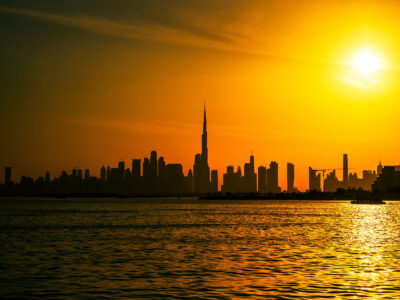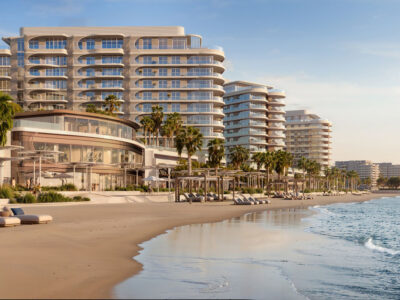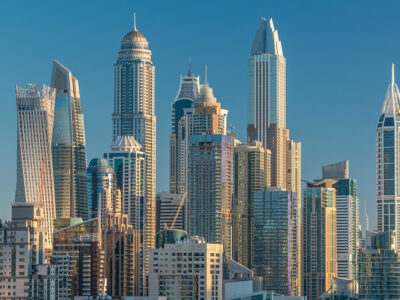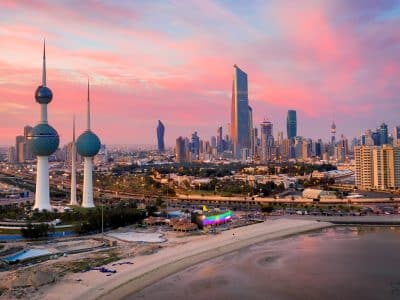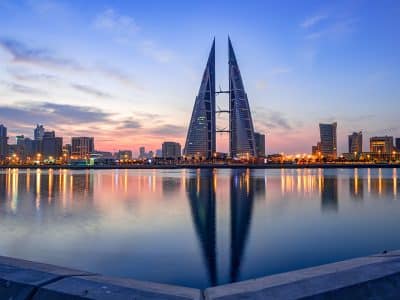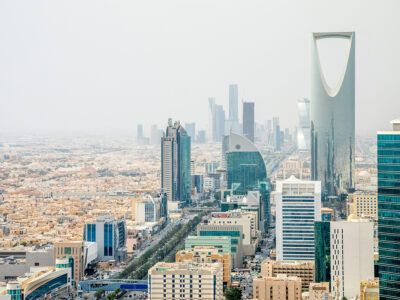Real estate recovery is likely to be fragmented in Dubai with the residential sector gaining momentum during 2021 while hospitality and retail lag behind, according to new research.
S&P Global Ratings said that after a tough 2020, this year looks brighter for the real estate sector in Dubai as it emerges from a very low point.
The extent of the impetus, however, differs materially across real estate segments, with the residential segment emerging ahead of hospitality.
“In residential real estate, bigger and well-established developers offering high-quality assets in prime locations are set to capture energised demand. However, secondary players will continue to struggle due to structural oversupply,” the ratings agency said in a new research note.
It added that it foresees only gradual recovery for mall operators, with subdued footfall and the struggling tourism sectorconstraining profitability, while new capacity ushers in sharp competition and continues to pressure rental rates.
S&P said: “The hospitality segment will continue to struggle since international travel to Dubai has been slow so far in 2021. We believe tourism may not recover to pre-pandemic levels until 2022 or later, despite the momentum we expect from the Expo 2020, which was delayed a year because of Covid-19. Importantly though, we believe that Dubai is well placed to capture resumed international air traffic.”
According to research, oversupply will continue to cramp hotel operators and their profitability despite slower-than-expected capacity additions.
New keys ahead of the Expo were scaled back from the initial plans, with just 5.5 percent growth between end-2019 and end-June 2021, bringing the total keys number to 134,000.
“We anticipate that hotel operators will continue to offer staycation deals to domestic tourists to compensate for the absence of international travellers,” S&P said.
On commercial real estate, the ratings agency said it anticipates that office space will remain exposed to the risk of high vacancy rates and rental pressure.
“Tenants may reconsider their workspace needs, considering the pandemic-induced changes related to remote work arrangements, and the amount of office space available remains abundant,” the report said.
.jpg?DB5J1DUH)
Because of the varying degrees of recovery across the real estate sector, S&P’s view of the creditworthiness of Dubai players varies from one company to another.
It revised the outlook on Emaar Properties to stable from negative in June while Damac Real Estate Development remains on a negative outlook.
S&P also said it expects a steady economic recovery in Dubai with GDP set to grow by 3.5 percent in 2021, followed by 2.5 percent in 2022, versus a 10.9 percent contraction in 2020.
In addition, it estimates population will grow by about 2 percent on average over 2021-2024, after a reduction in 2020. Other factors supportive of GDP growth include high Covid-19 inoculation rates and the gradual easing of global travel restrictions.
“We believe the city will register stronger tourism inflows in 2021, from historical lows in 2020, and sustain demand momentum, partly thanks to the World Expo in Dubai over October 2021–March 2022. The introduction of new residence visas, including for remote work and for retirees, should further propel population and investment growth over the longer term,” S&P added.
The ratings agency also highlighted that oversupply continues to represent the biggest structural risk to the real estate market. New project launches with several years lead time will extend the oversupply, thereby continuing to hamper the long-term outlook for price appreciation, it noted.
“At this time, the rebound in demand for residential real estate has largely benefited premium developers with a surge in presales and price improvements. Prices have risen for the first time since the decline initiated in 2015. The reversal started at the beginning of 2021, mainly for villas, as the buyers’ preferences shifted amid Covid-19-related confinement measures in 2020,” said the agency.
Recent market data suggests that apartments, which account for 85-90 percent of total properties, also witnessed a price increase of about 6 percent in the second quarter.
“We think that real estate prices overall are at a low point in the cycle and improved consumer sentiment, reinforced by improved oil and gas prices, will continue to drive demand in the second half of 2021. Additionally, effective measures in response to Covid-19 and high vaccination rates in Dubai, teamed with momentum from the World Expo, should support visitor growth, stimulate foreign investments, and underpin residential real estate’s rebound in 2021-2022,” said S&P.
“Nevertheless, we believe that price increases will not endure over the long term due to the structural oversupply of residential real estate in Dubai,” it added.
S&P said developers are likely to see continued strong presales in the second half of 2021 and announce launches in response to robust demand.
